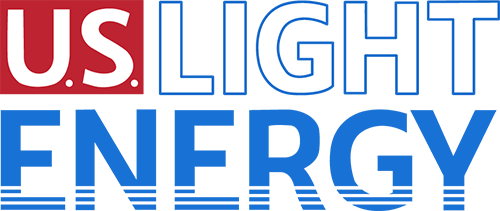
Leasing land for a solar farm project provides landowners with a great opportunity to earn stable, passive income while contributing to renewable energy growth. However, understanding what to expect and what questions to ask before committing to a long-term solar lease is essential. Here are five key questions you should ask to help you decide if leasing your land for solar is right for you:
How Do I Know if My Land is Right for Solar Development?
One of the first questions landowners should consider is whether their property is suitable for solar development. Not all land is equally viable for solar farms. Solar developers need ten acres or more of dry, relatively flat land close to an existing utility infrastructure. U.S. Light Energy (USLE) has a unique feasibility process developed over several years of experience in the solar industry. We analyze multiple factors to drive the most value per acre, allowing you to earn long-term income over the next twenty to thirty years!
Our comprehensive analysis ensures that the energy produced by the solar farm can be utilized by the surrounding community. We look for the proximity of 3-phase power lines and the available capacity of substations. This helps inform our approach when choosing the appropriate photovoltaic (PV) system technology for the solar farm at your location. We also look for possible environmental constraints such as critical habitats, wetlands, and forestations. These areas may limit the ability to fully develop the land for community solar. Also, U.S. Light Energy reviews local laws and regulations that govern solar farm development in your local area. We work with local officials to ensure our project meets those standards for approval.
Will Solar Farm Development Disrupt Agricultural Use?
For landowners with agricultural operations, many solar projects are compatible with ongoing agricultural use through a practice known as agrivoltaic farming. Agrivoltaics is a growing field where solar panels and agricultural activities coexist, allowing landowners to cultivate crops or graze livestock alongside solar arrays. With Agrivoltaics, solar panels are raised higher than usual above the land to accommodate crops and livestock. In some cases, the shade provided by solar panels even benefits certain crops by reducing water evaporation and mitigating extreme temperatures. Agrivoltaic farming can enhance land productivity, offering a dual income stream from both crop production and solar energy generation.
What are the Lease Rates for Community Solar Farm Development?
Understanding the potential income from a solar land lease is critical to decision-making. Lease rates vary based on factors like location, the size of the land, and local demand for solar energy. Rates in regions with high solar demand and suitable land attributes may be higher. In the state of Pennsylvania, an analysis by the College of Agricultural Studies at Penn State University has estimated that current land lease rates can range from $700 to $1,000 per acre.
Community solar projects may offer landowners competitive lease rates due to the expanding interest in renewable energy solutions. However, landowners should engage in open discussions with solar developers to understand the rate structure, including any potential annual adjustments. Typically, land lease rates increase by approximately 1.5% to 2.5% annually, providing landowners with predictable income throughout the duration of the lease. Most land leases span twenty to thirty years, offering consistent revenue over time.
How Do I Determine the Best Solar Developer for Leasing Land?
A reliable solar developer is essential for a successful solar land lease experience. The right developer should have a strong track record, knowledge of local regulations, and a commitment to responsible land use. To find a trustworthy solar developer, landowners should look for developers with experience in community solar projects, transparent leasing practices, and solid references.
With over thirty years of experience in solar land development, U.S. Light Energy is a leader in community solar projects. We have successfully developed over 185 commercial solar projects across multiple states—hundreds more have been vetted! Our Environmental, Social, and Governance (ESG) strategy is central to our approach and guides our decision-making processes. USLE is board-certified by NABCEP as a PV installation professional and PV technical sales expert. In 2023, U.S. Light Energy was voted one of the top solar contractors by Solar World—a distinction we’ve held for three consecutive years.
Who is Responsible for Maintaining the Land During the Lease?
When leasing land for solar, there are no upfront costs or maintenance requirements for landowners. Solar developers are responsible for land and equipment maintenance throughout the lease term, ensuring that solar panels and infrastructure are operational and safely managed. Maintenance activities include vegetation control, equipment inspections, and infrastructure repairs. The solar developer will also manage the road and pathway leading to the solar project. Landowners utilizing the land for agrivoltaic farming will be responsible for managing crops and livestock. U.S. Light Energy provides comprehensive maintenance services and regularly visits the solar project site throughout the year to ensure the PV system operates optimally.
Explore Solar Land Lease Options with US Light Energy
U.S. Light Energy (USLE) is a New York-based distributed generation energy development company specializing in community solar facilities and renewable energy solutions. If you’re interested in leasing your land for solar, we can help. Take the first step toward a profitable land lease by submitting your application today. We’ll conduct a free preliminary review of your property to determine its solar development potential. If you qualify, you could earn stable, passive income for several years while supporting the growth of clean, renewable energy! U.S. Light Energy is leading the charge for a new generation.
